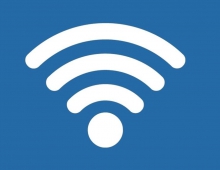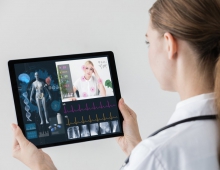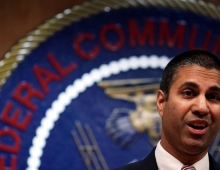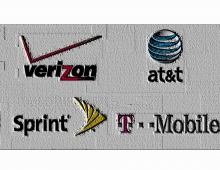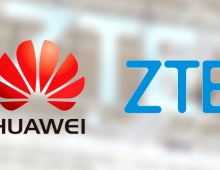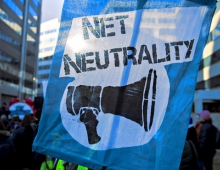
FCC Urges wireless carriers To Agree on Phone Unlocking Policy
The Federal Communications Commission (FCC) on Thursday demanded that wireless providers voluntarily agree on the rights of consumers to unlock mobile devices once contracts
end.
In a letter to CTIA President Steve Largent on Thursday, FCC Chairman Tom Wheeler urged the industry to adopt the new unlocking policy within weeks, before the holiday shopping season.
The commission has indicated that any such policy must contain five parts: (a) provide a clear, concise, and readily accessible policy on unlocking; (b) unlock mobile wireless devices for customers, former customers, and legitimate owners when the applicable service contract, installment plan, or ETF has been fulfilled; (c) affirmatively notify customers when their devices are eligible for unlocking and/or automatically unlock devices when eligible, without an additional fee; (d) process unlocking requests or provide an explanation of denial within two business days; and (e) unlock devices for military personnel upon deployment.
CTIA and the FCC are in agreement on all but the third item regarding consumer notification.
"Absent the consumer's right to be informed about unlocking eligibility, any voluntary program would be a hollow shell. We are anxious to work with you and your members to resolve this matter expeditiously," Steve Largent wrote in the letter.
He urged the industry to act voluntarily before the December holiday season or for the FCC to regulate.
In a statement on Thursday, CTIA's vice president for regulatory affairs, Scott Bergmann, said the trade association would continue discussions with FCC Chairman Tom Wheeler and that consumers now can take advantage of a "wide variety" of unlocked devices and "liberal" unlocking policies.
He added that not all devices can be switched from one provider to another because of their technological or engineering specifications.
Opponents of unlocking have argued that the phones should be "locked," or prevented from moving freely across networks, because of the subsidies that carriers such as AT&T Inc, Verizon Wireless and Sprint provide to consumers when they buy the phones.
Smartphone App Gauges Speed of Networks
Seperately, the The Federal Communications Commission on Thursday released its first smartphone app, a free program that allows consumers to measure the broadband speed they are getting on their mobile devices and to determine whether it is as fast as wireless companies say.
The app, F.C.C. Speed Test, works only on smartphones that run the Android operating system, but the commission is working on an iPhone version, which it expects to be ready by the end of January. The app provides information on upload and download speeds and on how efficiently data is transmitted.
The app also will allow the commission to aggregate data about broadband speeds from consumers across the country. It will use the data to create an interactive map, giving consumers a tool to use in comparison shopping rather than relying on wireless companies' promises.
The app will run periodically in the background on a consumer's phone, automatically performing tests when a user is not otherwise using the phone.
F.C.C. officials stressed that the software would not collect any personal or uniquely identifiable information, and that it would release information only after the data was analyzed.
The commission has indicated that any such policy must contain five parts: (a) provide a clear, concise, and readily accessible policy on unlocking; (b) unlock mobile wireless devices for customers, former customers, and legitimate owners when the applicable service contract, installment plan, or ETF has been fulfilled; (c) affirmatively notify customers when their devices are eligible for unlocking and/or automatically unlock devices when eligible, without an additional fee; (d) process unlocking requests or provide an explanation of denial within two business days; and (e) unlock devices for military personnel upon deployment.
CTIA and the FCC are in agreement on all but the third item regarding consumer notification.
"Absent the consumer's right to be informed about unlocking eligibility, any voluntary program would be a hollow shell. We are anxious to work with you and your members to resolve this matter expeditiously," Steve Largent wrote in the letter.
He urged the industry to act voluntarily before the December holiday season or for the FCC to regulate.
In a statement on Thursday, CTIA's vice president for regulatory affairs, Scott Bergmann, said the trade association would continue discussions with FCC Chairman Tom Wheeler and that consumers now can take advantage of a "wide variety" of unlocked devices and "liberal" unlocking policies.
He added that not all devices can be switched from one provider to another because of their technological or engineering specifications.
Opponents of unlocking have argued that the phones should be "locked," or prevented from moving freely across networks, because of the subsidies that carriers such as AT&T Inc, Verizon Wireless and Sprint provide to consumers when they buy the phones.
Smartphone App Gauges Speed of Networks
Seperately, the The Federal Communications Commission on Thursday released its first smartphone app, a free program that allows consumers to measure the broadband speed they are getting on their mobile devices and to determine whether it is as fast as wireless companies say.
The app, F.C.C. Speed Test, works only on smartphones that run the Android operating system, but the commission is working on an iPhone version, which it expects to be ready by the end of January. The app provides information on upload and download speeds and on how efficiently data is transmitted.
The app also will allow the commission to aggregate data about broadband speeds from consumers across the country. It will use the data to create an interactive map, giving consumers a tool to use in comparison shopping rather than relying on wireless companies' promises.
The app will run periodically in the background on a consumer's phone, automatically performing tests when a user is not otherwise using the phone.
F.C.C. officials stressed that the software would not collect any personal or uniquely identifiable information, and that it would release information only after the data was analyzed.



